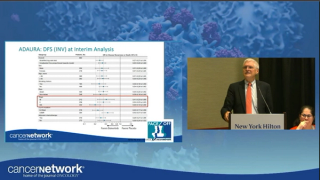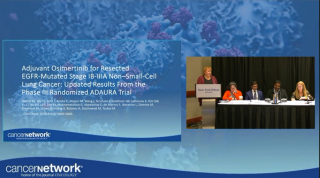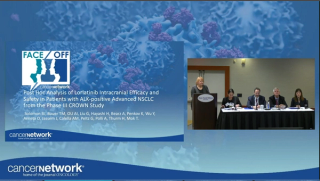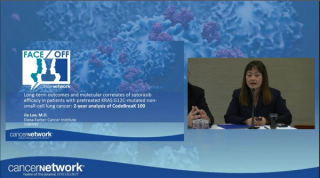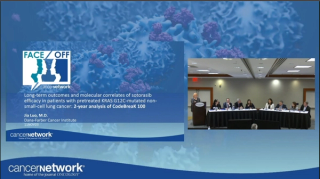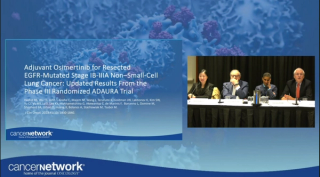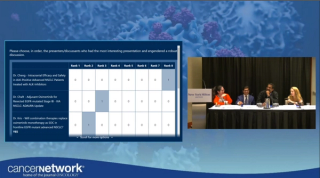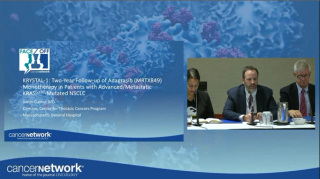
Lung Cancer
Latest News

Latest Videos

CME Content
More News

Experts consider the influence of combination therapies on EGFR-mutant lung cancer treatment, including the impact on central nervous system (CNS) response, challenges in CNS metastases management, and the potential alternatives to whole-brain radiation.

Explore significant updates in the field of EGFR-mutant lung cancer treatment, focusing on the introduction of combination therapy in the first-line setting, including the FLAURA2., MARIPOSA, and RAMOSE trials, offering improved progression-free survival and potential implications for patient care.
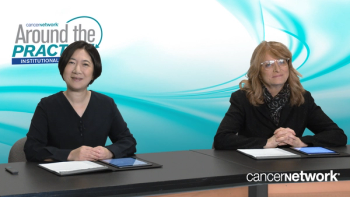
Sai-Hong Ou, MD, PhD, discusses the rapidly evolving landscape of first-line therapy for sensitizing EGFR mutant non-small cell lung cancer, including potential combination therapies and the introduction of new treatment options, such as antibody drug conjugates.
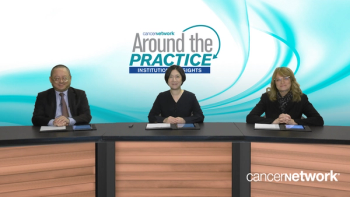
Dr Sai-Hong Ou and Dr Janellen Smith discuss the case of a 59-year-old patient with non-small cell lung cancer and an EGFR mutation who experienced severe diarrhea and acne form rash while on osimertinib, providing insights into managing these treatment-related side effects.

Early CT screening leads to a 20-year lung cancer survival rate of 81%.
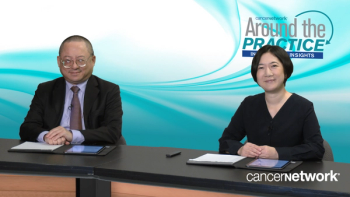
Dr Sai-Hong Ou highlights the significance of next-generation sequencing for detecting EGFR mutations in patients with non-small cell lung cancer and the potential for adjuvant testing regardless of disease stage.

In this program, Sai-Hong Ou, MD, PhD, discusses biomarker testing for precision medicine in non-small cell lung cancer, emphasizing the importance of both tissue and blood-based genotyping, and the need for a complementary approach due to potential limitations in detecting targetable mutations.
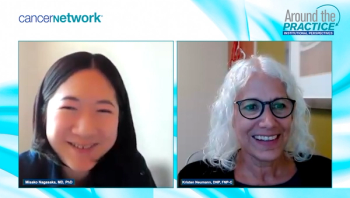
Misako Nagasaka, MD, PhD, and Kristen Neumann, DNP, FNP-C, emphasize the importance of patient education, discussing how understanding the biological reasons behind treatments for EGFR-mutated non-small cell lung cancer and their side effects can lead to better outcomes, and highlighting the need for collaborative care and clear communication.

Data from the phase 3 KEYNOTE-091 trial supported the European Commission’s approval of pembrolizumab as an adjuvant treatment for adults with non–small cell lung cancer at high risk of recurrence following complete resection and platinum-based chemotherapy.

Misako Nagasaka, MD, PhD, and Kristen Neumann, DNP, FNP-C, discuss the importance of early dermatological consultations and multidisciplinary education for managing infusion-related adverse events like rashes from amivantamab, emphasizing the benefits of a well-coordinated team and the value of experience in responding to reactions.
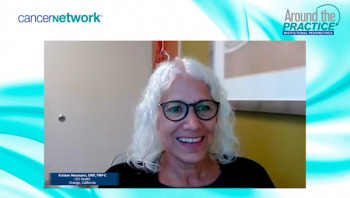
Kristen Neumann, DNP, FNP-C, emphasizes the efficacy of the drug amivantamab for patients with EGFR exon 20 mutations, explaining the challenges of unique skin rashes, but highlighting the importance of teamwork in effectively managing and treating these adverse skin effects.

Findings from the phase 3 TARGET-TP trial support a biomarker-driven primary thromboprophylaxis strategy in adult patients with lung and gastrointestinal cancers as routine care.

Multidisciplinary Management of Treatment-Related Adverse Events in Patients With EGFR-Mutated NSCLC
Kristen Neumann, DNP, FNP-C, highlights the value of a multidisciplinary approach in the care of patients with EGFR-mutated non-small cell lung cancer, emphasizing the roles of dermatologists, pharmacists, and nurses in ensuring thorough patient assessment and education; Misako Nagasaka, MD, PhD, highlights data from WCLC 2023 on osimertinib in EGFR-mutated NSCLC.

Kristen Neumann, DNP, FNP-C, emphasizes the importance of early assessment and potential dose reductions or holds when patients on treatment for EGFR-mutated non-small cell lung cancer show adverse effects, while Misako Nagasaka, MD, PhD, stresses the need for accurate symptom history and supporting lab work to ensure patient safety.

Kristen Neumann, DNP, FNP-C, and Misako Nagasaka, MD, PhD, discuss the importance of patient education on diarrhea as a side effect of EGFR-mutated non-small cell lung cancer treatment, emphasizing dietary considerations and the use of over-the-counter remedies.

Misako Nagasaka, MD, PhD, and Kristen Neumann, DNP, FNP-C, a family nurse practitioner with 30 years of experience in oncology, discuss EGFR-mutated non-small cell lung cancer, the available treatment options, and common side effects such as rash, emphasizing patient education and proactive management for side effects.
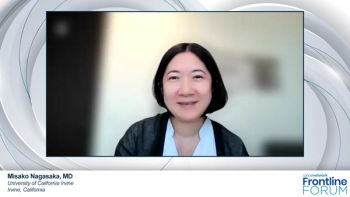
Closing out their discussion on EGFR Exon20+ non–small cell lung cancer, Joshua Sabari, MD, and Misako Nagasaka, MD, share excitement for future evolutions in the treatment paradigm.
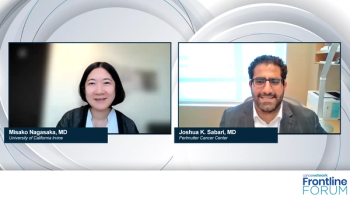
A brief review of novel EGFR TKIs that may have stronger CNS penetration in patients with non–small cell lung cancer and brain metastases.
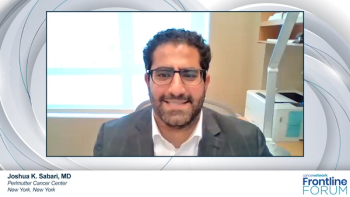
Following their review of data behind amivantamab and mobocertinib in EGFR Exon20+ non–small cell lung cancer, expert oncologists consider factors that help to inform treatment selection.

Joshua Sabari, MD, and Misako Nagasaka, MD, reflect on clinical trial data and experience with mobocertinib in patients with EGFR Exon20+ non–small cell lung cancer.

Expert perspectives on clinical trial data and personal experience with amivantamab in the setting of EGFR Exon20+ non–small cell lung cancer.

Key opinion leaders in non–small cell lung cancer management reflect on the current first- and second-line treatment options available to patients with EGFR Exon20+ disease.

The accepted new drug application is for Pemrydi RTU, a ready-to-use injectable that requires no reconstitution, dilution, or refrigeration.

Findings from a study suggest that anti-frameshift peptide antibodies may also predict incidence of immune-related adverse effects in patients with lung cancer following immune checkpoint inhibitor therapy.

SynKIR-110, which received fast track designation from the FDA, is currently under investigation as treatment for patients with mesothelioma in the phase 1 STAR-101 trial.



